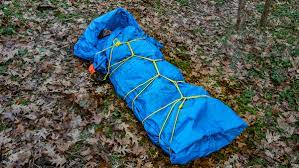GrantK
Well-known member
drying anything is much more forgiving in a synthetic bag, you can dry "Damp" clothes in low humidity in a down bag, you can usually dry "wet" clothes in a humid environment in a synthetic bag... with down there seems to be a hard-line where the bag can't dissipate any more moisture and gets saturated... my personal preference is to strip down and have a second dry set of clothes but if that isn't an option full suit in a synthetic bag works pretty well...





